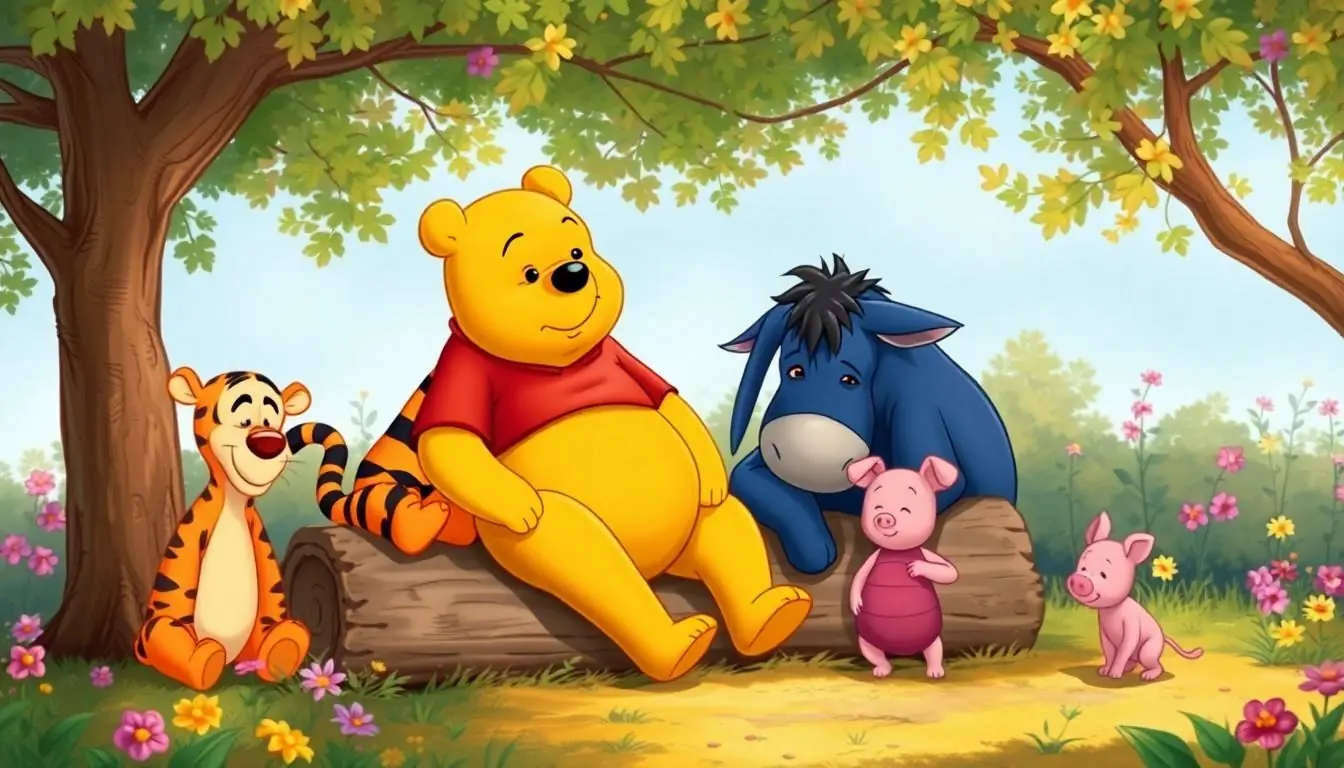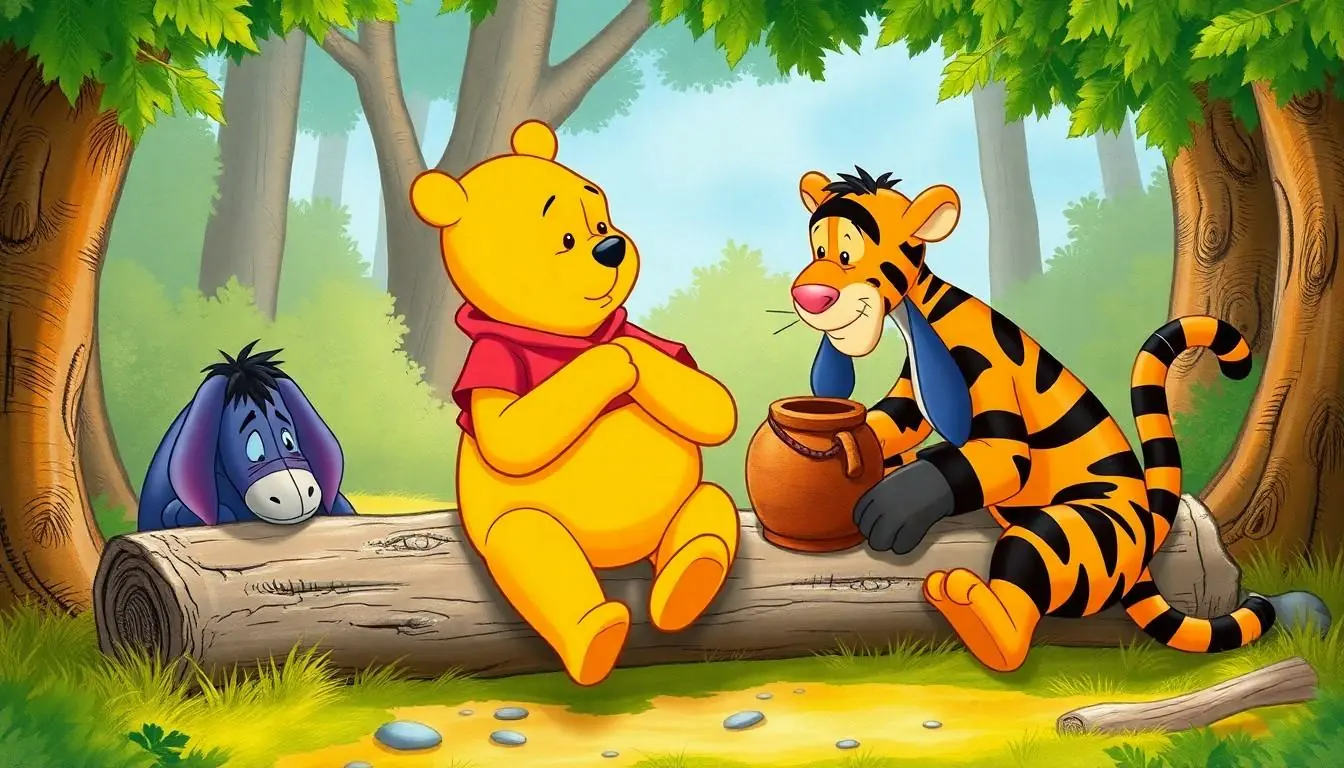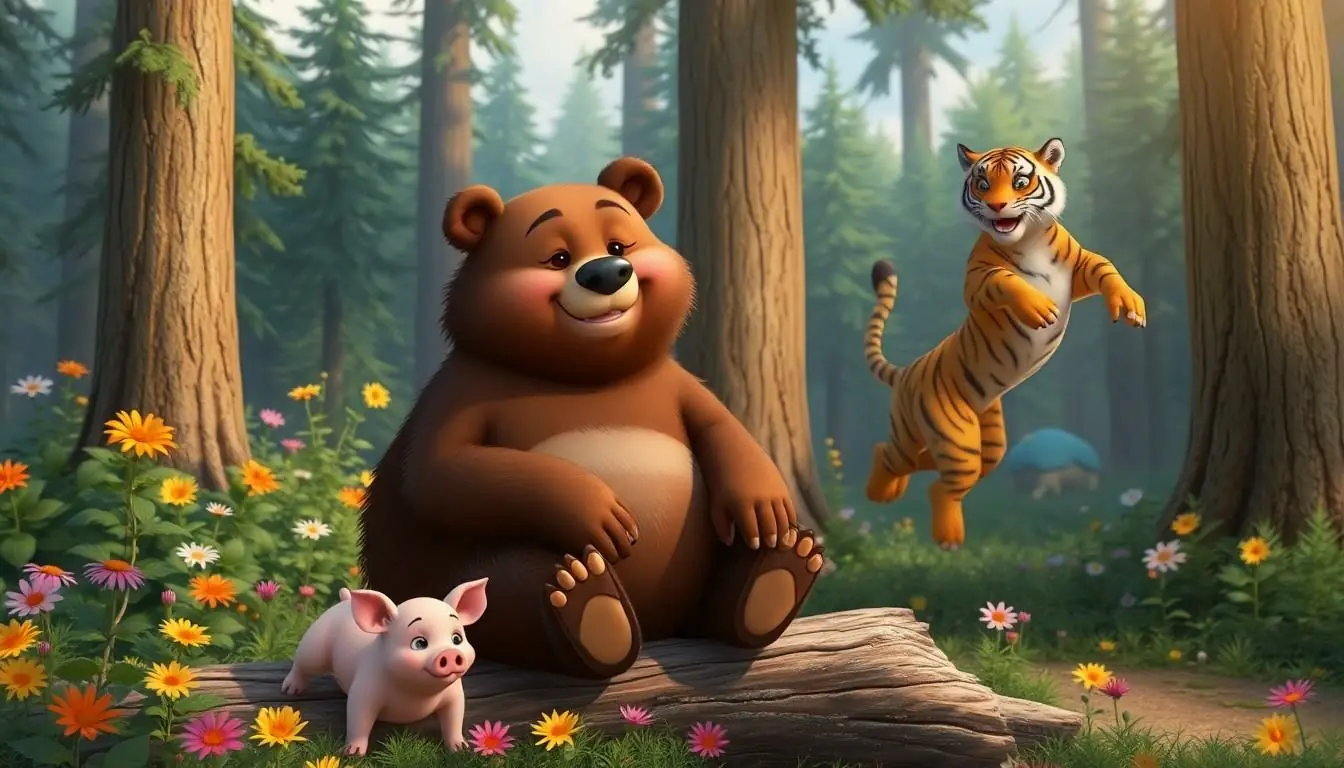Table of Contents
ToggleWinnie the Pooh isn’t just a cuddly bear with a penchant for honey; he’s a beloved character who offers valuable insights into mental health. In the Hundred Acre Wood, Pooh and his friends navigate the ups and downs of life, reminding us that it’s perfectly okay to feel a little blue sometimes. After all, who hasn’t had a day when they just wanted to lounge around with a pot of honey?
Exploring Pooh’s world reveals how these charming tales can help us understand our own emotions. From Eeyore’s gloomy outlook to Tigger’s bouncy optimism, each character showcases different aspects of mental health. By diving into their adventures, readers can find humor and wisdom in the simplest moments, proving that even the fluffiest of bears can teach us about resilience and friendship. So grab your favorite snack and let’s uncover how Winnie the Pooh can brighten our mental health journey.
Winnie The Pooh: A Reflection on Mental Health
Winnie the Pooh and his friends personify various emotional experiences. Eeyore illustrates feelings of sadness and gloom, reminding readers that experiencing low moments is common. Tigger, on the other hand, represents boundless energy and enthusiasm, showing the spectrum of emotions within the group. Observing these characters reveals that each emotion contributes to overall well-being.
Every adventure in the Hundred Acre Wood serves a purpose. Pooh’s unwavering kindness highlights the importance of building supportive relationships. Characters come together to overcome challenges, creating a strong sense of community that aids in mental health resilience. Their interactions emphasize that seeking help and support is a vital part of coping with struggles.
The interactions among friends demonstrate valuable lessons. Pooh’s thoughtfulness and patience teach mindfulness, encouraging individuals to be present. Tigger’s exuberance offers a reminder about the joy of embracing moments of happiness. Together, these elements reinforce the idea that humor can be a powerful tool for managing difficult emotions.
Stories from the Hundred Acre Wood also explore themes of acceptance. Characters accept each other’s quirks, creating an environment where everyone feels valued. This acceptance fosters understanding and validation, essential components of mental health. Encouraging readers to reflect on their own social circles may inspire them to cultivate similar supportive networks.
Winnie the Pooh ultimately provides a gentle guide for navigating mental health. His adventures highlight that emotions are valid and normal. Through relatable experiences, it becomes clear that mental health discussions can take place in everyday life, making it easier for individuals to open up about their feelings.
Key Characters and Their Struggles


Winnie the Pooh and his friends face various emotional challenges, illustrating the complexities of mental health.
Winnie The Pooh and Anxiety
Winnie the Pooh experiences anxiety, particularly around uncertainty. He often worries about finding honey and the safety of his friends. These moments highlight the impact of overthinking on emotional well-being. Surrounded by his friends, Pooh learns that sharing his worries alleviates his anxiety. Support from others fosters a sense of belonging, illustrating the importance of community in managing anxious feelings. Through his adventures, Pooh shows that it’s okay to feel anxious and that talking about feelings can bring comfort.
Eeyore and Depression
Eeyore embodies the struggle with depression, frequently expressing sadness and hopelessness. His character represents feelings of isolation, reflecting common experiences many people face. Eeyore’s interactions with friends provide critical support, emphasizing the importance of connection in overcoming depressive feelings. Despite his gloomy outlook, Eeyore encounters moments of kindness that remind him of the love surrounding him. These moments highlight the impact of empathy and understanding on mental health recovery. Through Eeyore, the stories teach readers that it’s crucial to recognize and validate feelings of sadness while seeking support from others.
Tigger and Hyperactivity
Tigger showcases hyperactivity, often bouncing from one activity to another with boundless energy. His character embodies the challenges of impulsivity and distraction, which can complicate relationships. While Tigger brings joy and excitement, his lack of focus sometimes leads to misunderstandings with friends. Through Tigger, the stories illustrate the importance of channeling energy productively. His friends learn to balance Tigger’s enthusiasm with patience and understanding. Tigger’s experiences underscore the significance of managing hyperactivity and fostering supportive interactions, demonstrating that accepting individual differences can strengthen friendships.
Thematic Analysis of Mental Health
Winnie the Pooh and his friends offer profound insights on mental health through their relationships and experiences.
Friendship and Support
Friendship plays a crucial role in promoting mental well-being. Pooh and his friends consistently show that emotional support eases individual struggles. Eeyore often faces feelings of loneliness but finds comfort in the presence of friends. Tigger’s exuberant personality balances Eeyore’s sadness, reminding readers of the value of diversifying connections. The group actively participates in each other’s lives, illustrating that shared experiences foster resilience. Community interactions contribute significantly to mental health, as these bonds create an atmosphere of trust and understanding. Readers can derive that forming supportive relationships leads to lasting emotional benefits in their own lives.
Coping Mechanisms
Characters exemplify various coping mechanisms for managing emotions. Pooh frequently shares his worries, highlighting that open communication reduces anxiety. Eeyore finds solace in expressing his feelings, demonstrating the importance of seeking support. Tigger, on the other hand, channels his energy into playful activities, revealing a positive outlet for anxiety. Each character shows that adapting different strategies enhances well-being. Together, they embody coping mechanisms like mindfulness and humor, teaching readers practical approaches to handling emotional challenges. By embracing these techniques, individuals can cultivate a more resilient mindset.
Lessons from Winnie The Pooh
Winnie the Pooh and his friends share essential lessons on mental health through their interactions. The experiences of each character provide valuable insights into emotional well-being. Eeyore, for example, illustrates the struggle with sadness and isolation. He frequently feels down, yet finds support from his friends, highlighting the significance of connection in overcoming feelings of depression.
Pooh himself often grapples with anxiety, particularly when faced with uncertainty. By sharing his worries with friends, he discovers that opening up can alleviate stress. Tigger represents hyperactivity and impulsivity; through his boundless energy, he demonstrates the importance of patience and understanding in relationships. The dynamic between these characters showcases the complexity of emotional health.
Friendship emerges as a vital theme, consistently reinforcing mental well-being. When Eeyore feels low, Pooh and Tigger provide companionship that eases his struggle. Tigger’s exuberance complements Eeyore’s melancholic nature, emphasizing the value of diverse emotional connections. Their interactive adventures foster resilience, promoting a community atmosphere filled with trust and understanding.
Moreover, characters model practical coping mechanisms. Pooh vocalizes his anxieties to reduce emotional strain, while Eeyore articulates feelings for comfort. Tigger channels energy into playful activities, demonstrating the positive impacts of humor and mindfulness. All together, the characters exemplify effective strategies for managing emotional challenges while encouraging readers to embrace their feelings in everyday life.
Winnie the Pooh and his friends offer invaluable insights into mental health through their relatable experiences. Their adventures remind everyone that it’s okay to feel a range of emotions and that seeking support is essential. The characters’ unique traits and struggles highlight the importance of community and understanding in fostering resilience. By embracing each other’s differences and sharing their feelings, they create a nurturing environment that encourages open discussions about mental well-being. Ultimately, the lessons from the Hundred Acre Wood serve as a gentle reminder that friendship and connection are vital in navigating life’s emotional challenges.




